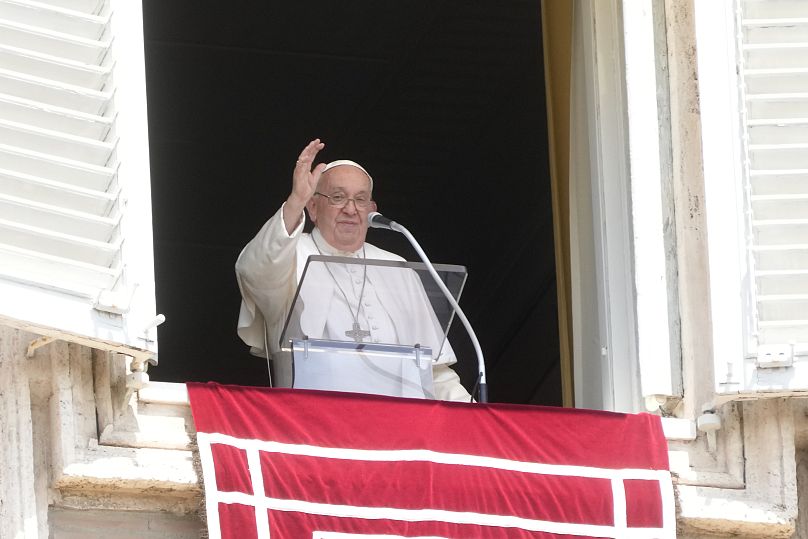In a letter recently translated in eight languages, Pope Francis argues that literature should not be written off as "a minor art" due to its capacity to stimulate empathy and counter “the obsession with screens and with toxic, superficial and violent fake news.”
Pope Francis has written a letter in which he advises that reading novels and poems should be encouraged in the training of future priests.
The head of the Catholic church cites authors like C.S. Lewis (“The Chronicles of Narnia”) and Marcel Proust (“In Search of Lost Time”) alongside poets like Paul Celan, Jorge Luis Borges and T.S. Eliot in the letter, “On the Role of Literature in Formation”, which was written on 17 July and published in various languages on Sunday.
Pope Francis writes that literature is “listening to another person’s voice” and that while it is often considered unnecessary for the education of future priests, he singles out this stance as “unhealthy”.
He adds that this approach can lead to the “serious intellectual and spiritual impoverishment” of priests and calling for a “radical change of course”.
His words are not only aimed at seminarians but are crucial for “the formation of all those engaged in pastoral work, indeed of all Christians.”
The Pope’s letter cites his own experience as a literature teacher in a Jesuit school in Santa Fe, Argentina, between 1964 and 1965: “I taught the last two years of high school and had to ensure that my pupils studied El Cid. The students were not happy; they used to ask if they could read García Lorca instead. So I decided that they could read El Cid at home, and during the lessons I would discuss the authors the students liked best”.
He adds that there is “nothing more counterproductive” than reading something out of a “sense of duty”, making “considerable effort simply because others have said it is essential”.
The pontiff goes on to share his personal literary tastes, citing his love of the tragedians “because we can all embrace their works as our own, as expressions of our own personal drama. He adds: “In weeping for the fate of their characters, we are essentially weeping for ourselves, for our own emptiness, shortcomings and loneliness.”
He also mentions the benefits of reading, including the stimulation of imagination, the enlargement of vocabulary, as well as how it allows readers to develop an “imaginative empathy”. He also describes literature as something of an antidote to “our present unremitting exposure to social media, mobile phones and other devices.”
“I very much appreciate the fact that at least some seminaries have reacted to the obsession with screens and with toxic, superficial and violent fake news by devoting time and attention to literature,” he writes. “They have done this by setting aside time for tranquil reading and for discussing books, new and old, that continue to have much to say to us.”
“We must never forget how dangerous it is to stop listening to the voice of other people when they challenge us," the Pope writes. "We immediately fall into self-isolation; we enter into a kind of ‘spiritual deafness’, which has a negative effect on our relationship with ourselves and our relationship with God, no matter how much theology or psychology we may have studied.”
“We desperately need to counterbalance this inevitable temptation to a frenetic and uncritical lifestyle by stepping back, slowing down, taking time to look and listen,” he continues. “This can happen when a person simply stops to read a book.”












